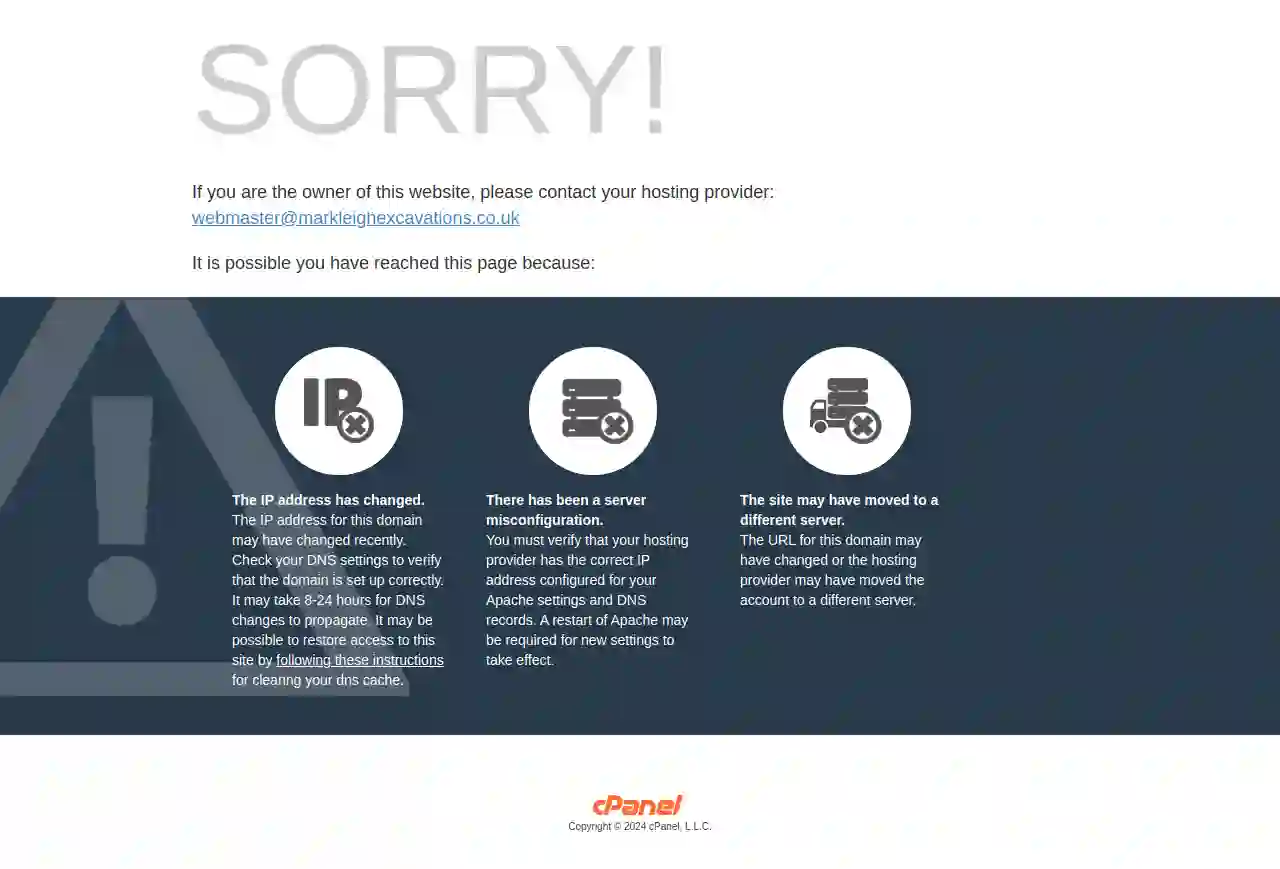Excavation Contractors Standish
Find Excavation Companies in Standish
Receive 3 FREE Excavating Contractor quotes for your project today! Compare profiles, reviews, accreditations, portfolio, etc... and choose the best deal.

Mark Leigh Excavations Ltd
Unit 1, The Maltings, Colchester Road, Colchester, CO7 6DP, GBMarkleigh Excavations: Your Trusted Partner for Excavation Services Markleigh Excavations is a family-run business with over 20 years of experience in the excavation industry. We are committed to providing our clients with high-quality, reliable, and efficient excavation services. Our team of skilled and experienced operators is dedicated to delivering projects on time and within budget. We pride ourselves on our commitment to safety, customer satisfaction, and environmental responsibility. We offer a wide range of excavation services to meet the needs of our clients, including: Site clearance Foundation excavation Drainage installation Road construction Demolition And more! We are equipped with a fleet of modern and well-maintained machinery to handle any project, big or small. We also have a team of experienced engineers and project managers who can provide expert advice and guidance throughout the entire process. At Markleigh Excavations, we believe in building strong relationships with our clients. We are committed to providing excellent customer service and ensuring that our clients are completely satisfied with our work. Contact us today to discuss your excavation needs.
- Services
- Why Us?
Get Quote- WL
WL Piling
4.714 reviewsLeigh, GB- Services
- Why Us?
Get Quote - La
Lawrence grab & Tipper Hire excavation Groundwork’s Aggregates
4.315 reviewsLeigh, GB- Services
- Why Us?
Get Quote - AL
ALLAN DAVIES EARTHWORKS LTD
56 reviewsLeigh, GB- Services
- Why Us?
Get Quote - Ha
Hanchant Construction Ltd
Leigh, GB- Services
- Why Us?
Get Quote
Over 13,059+ Excavation Companies registered
Our excavation providers operate in Standish and surrounding areas!
ExcavationHQ has curated and vetted the Best Excavation Contractors in Standish. Find a top & trustworthy contractor today.
Frequently Asked Questions About Excavation Contractors
- Basement Size: The larger the basement, the more excavation is required, increasing the cost.
- Soil Type: Excavating rocky or dense clay soil is generally more expensive than loose soil.
- Accessibility: Difficult-to-access sites might require specialized equipment or more labor, driving up costs.
- Foundation Type: The chosen foundation type (full basement, crawl space, slab) affects excavation needs.
- Underpinning: If underpinning (strengthening existing foundations) is necessary, it significantly increases costs.
- Disposal Fees: Hauling excavated soil to disposal sites adds to the overall expense.
- Project Size and Scope: Larger, more complex excavations naturally take longer.
- Soil Conditions: Rocky or challenging soil types can slow down progress.
- Site Accessibility: Limited access might require more time for maneuvering equipment and hauling materials.
- Weather: Inclement weather can cause delays.
- Permitting and Inspections: Waiting for permits or inspections can extend the timeline.
What is the difference between topsoil and subsoil?
Topsoil: The uppermost layer, typically rich in organic matter, nutrients, and microorganisms. It's essential for plant growth and is often darker in color.
Subsoil: The layer beneath the topsoil, containing less organic matter and generally denser. It provides support for roots but is less fertile than topsoil.
During excavation, topsoil is often removed and preserved separately for later use in landscaping, while subsoil is typically used for backfilling or other less demanding applications.
How much does it cost to excavate a basement?
What is the difference between excavation and grading?
Excavation: Primarily involves removing earth or other materials from a site. It's about digging down and creating space.
Grading: Focuses on shaping and leveling the ground to a specific slope or elevation. It's about adjusting the existing terrain.
For example, you might excavate a foundation and then grade the surrounding area to ensure proper drainage and a level surface for landscaping.
How long does an excavation project take?
What is the difference between topsoil and subsoil?
Topsoil: The uppermost layer, typically rich in organic matter, nutrients, and microorganisms. It's essential for plant growth and is often darker in color.
Subsoil: The layer beneath the topsoil, containing less organic matter and generally denser. It provides support for roots but is less fertile than topsoil.
During excavation, topsoil is often removed and preserved separately for later use in landscaping, while subsoil is typically used for backfilling or other less demanding applications.
How much does it cost to excavate a basement?
- Basement Size: The larger the basement, the more excavation is required, increasing the cost.
- Soil Type: Excavating rocky or dense clay soil is generally more expensive than loose soil.
- Accessibility: Difficult-to-access sites might require specialized equipment or more labor, driving up costs.
- Foundation Type: The chosen foundation type (full basement, crawl space, slab) affects excavation needs.
- Underpinning: If underpinning (strengthening existing foundations) is necessary, it significantly increases costs.
- Disposal Fees: Hauling excavated soil to disposal sites adds to the overall expense.
What is the difference between excavation and grading?
Excavation: Primarily involves removing earth or other materials from a site. It's about digging down and creating space.
Grading: Focuses on shaping and leveling the ground to a specific slope or elevation. It's about adjusting the existing terrain.
For example, you might excavate a foundation and then grade the surrounding area to ensure proper drainage and a level surface for landscaping.
How long does an excavation project take?
- Project Size and Scope: Larger, more complex excavations naturally take longer.
- Soil Conditions: Rocky or challenging soil types can slow down progress.
- Site Accessibility: Limited access might require more time for maneuvering equipment and hauling materials.
- Weather: Inclement weather can cause delays.
- Permitting and Inspections: Waiting for permits or inspections can extend the timeline.